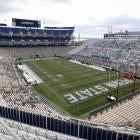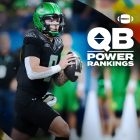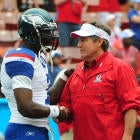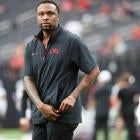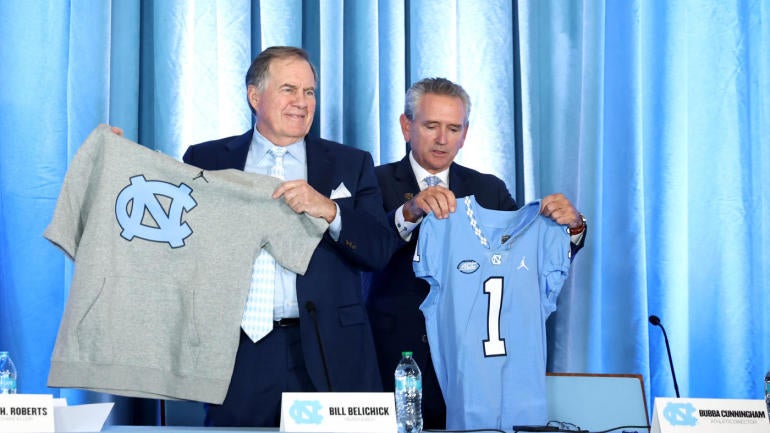
North Carolina athletic director Bubba Cunningham had a surprise for the man just hired to guide his football program.
In an ode to his new coach's sleeveless hoodie fashion while in New England that spawned a nickname, Cunningham showed off a blazer with cut-off sleeves. It felt like Cunningham's very public embrace of new UNC head coach Bill Belichick, who agreed to a 5-year, $50 million deal in a decision that stunned both the NFL and college football ranks.
Yet multiple sources told CBS Sports throughout the coaching search and in its aftermath that Belichick was not Cunningham's preferred target. The UNC AD preferred to go younger after he fired 73-year old Mack Brown following a 44-33 record in six seasons in Chapel Hill. It was Brown's second stint leading the UNC program after a successful run 1988-97 that included six bowl appearances.
And while the 72-year old Belichick is technically younger, the initial plan was to find someone akin to 34-year old Arizona State coach Kenny Dillingham, who has orchestrated an incredible overhaul in two years in Tempe to guide the Sun Devils to the College Football Playoff this season. Cunningham initially zeroed in on Tulane head coach Jon Sumrall and Iowa State head coach Matt Campbell as his top two candidates, according to sources, and wanted to talk to both after their respective teams played in conference championship games last week.
In his initial public comments about the coaching search, Cunningham said "all the coaches we're talking to right now are playing, and so they're continuing to be in championship games or in the playoffs."
How'd Belichick end up as the guy, then?
"It was a fractured search," one source familiar with the search told CBS Sports. "No one was on the same page. It was extremely dysfunctional."
Sources point to John Preyer, the chairman of the UNC Board of Trustees, who pushed Belichick from the start. Preyer publicly criticized Cunningham's handling of the firing of Brown, calling it shameful, and was intent on forging his own path with the search. Those involved in the process describe what were essentially two separate searches: Cunningham's traditional search process, and Preyer and other trustees' pursuit of Belichick. It created confusion and concern among the non-Belichick candidates Cunningham was interested in interviewing.
A spokesperson for UNC athletics disagreed with the assertion there was a split in the coaching search, issuing the following statement to CBS Sports:
"To say the process was 'fractured' and there were 'two separate searches' is inaccurate and misrepresents what occurred. The Chancellor and Director of Athletics led the search committee and were in constant communication and agreement throughout the process. We had multiple candidates for the job and conducted multiple interviews, and we ultimately selected the best choice for the University of North Carolina."
The 62-year-old Cunningham has been in his post since 2011 and has a strong reputation across the industry. He was named the 2019-20 AD of the Year.
Cunningham, according to sources, believed that the Belichick pursuit would blow over, not believing the eight-time Super Bowl winner would actually come to Chapel Hill. But after Inside Carolina first reported Belichick as a candidate, Preyer's pursuit gained momentum despite the board chairman having no official ability to make a hire. It quickly became a national story and the talks between Belichick and UNC trustees intensified.
"(It) had leaked to so many people that they were like, 'F—, we'll look like a bunch of idiots if we don't do this," a second source familiar with the search told CBS Sports.
The Belichick pursuit signaled to many within the industry that Cunningham wasn't pulling the strings on the search. Campbell, who some involved with the search initially believed would be the next head coach, declined to talk to Cunningham after his season concluded in a Big 12 Championship Game loss to Arizona State. Iowa State announced an eight-year extension for Campbell on Wednesday that would keep him in Ames until 2032.
The 42-year old Sumrall, one of the hottest candidates in the country, had an interview with UNC that went well but he ultimately decided to stay at Tulane last Sunday after the school committed to greater NIL resources. It was a significant win for the Group of Five school to hold on to Sumrall, who also received serious interest from West Virginia. Sumrall was expected to be choosy, and he was.
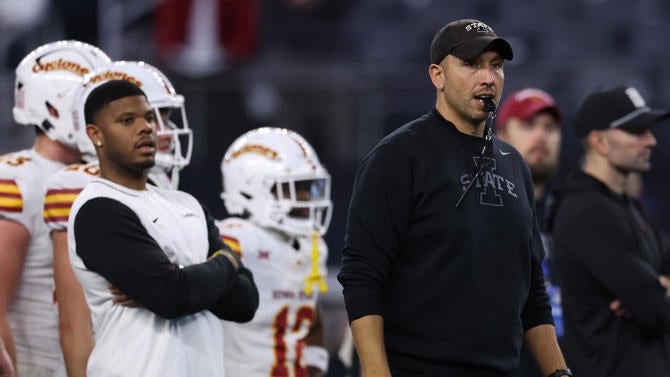
With Campbell and Sumrall off the table, Cunningham turned to younger assistant coaches like Georgia defensive coordinator Glenn Schumann and Cleveland Browns tight ends coach Tommy Rees. Former Arizona Cardinals head coach Steve Wilks and former Cleveland Browns head coach Freddie Kitchens, who served as UNC's interim coach after Brown's firing, also interviewed for the position.
Former Alabama head coach Nick Saban has personally advocated for Rees to get interviews at multiple jobs this coaching cycle including UNC and West Virginia. Sources said Cunningham liked the idea of Rees, the former Alabama offensive coordinator, as his top option if Belichick didn't work out.
That, of course, never happened as Belichick ultimately agreed on Wednesday to become the Tar Heels' next football coach. There were many skeptical of Belichick's true interest early on, believing he was simply entertaining the job as a leverage play to see if there would be NFL opportunities. Nothing changed on the NFL front despite multiple days of coverage of Belichick possibly making the move to college football. "There wasn't an appetite for him," one source said.
Preyer's pursuit of Belichick ultimately resonated with chancellor Lee Roberts, who arrived on campus in January. Roberts initially supported Cunningham's search, according to sources, but when there weren't as many obvious names left on the board that would invigorate the fanbase, he got on board with Preyer's splashy idea of wooing the NFL's greatest coach to college football.
There were concerns among some interested parties about whether UNC would fully fund revenue share for football given its 28 sports. In Belichick's term sheet released Thursday, UNC committed to $13 million in revenue share. There have been reports of a $20 million NIL commitment, although it has been unclear on whether that includes that revenue share number. Jim Cavale, a NIL expert and co-founder of college players association Athletes.org, believes it does.
"The reason he's going to have a $20 million NIL budget is because they're telling him they are going to fully fund the House settlement," Cavale told CBS Sports. "He's bringing (Michael) Lombardi there because Lombardi was a GM and brilliant sports executive and he's going to come in and manage that $20 million."
What is clear is that UNC made a major financial commitment to Belichick ($10 million annually with the first three years of a 5-year deal fully guaranteed) and an assistant coach and off-field staff salary pool that totals $15.3 million, a significant upgrade over the $5 million it paid Brown for the 2024 season. It is UNC's big swing to be nationally relevant in football in a way it had never been before and likely would not have been as financially committed if the search resulted in someone other than Belichick.
The marriage of Belichick and Lombardi is poised to bring an NFL model to an increasingly professional version of college football with NIL, transfer portal and other changes. Although UNC's AD didn't originally envision a 72-year old NFL legend to replace a 73-year old college one, Belichick's arrival in Chapel Hill could be an unexpected solution for a program that has underachieved for decades.
"I think there's a lot of pride in this program," Belichick said, "and I want to do everything I can here to help take it to the highest level."
CBS Sports' Richard Johnson and Matt Zenitz contributed to this report









